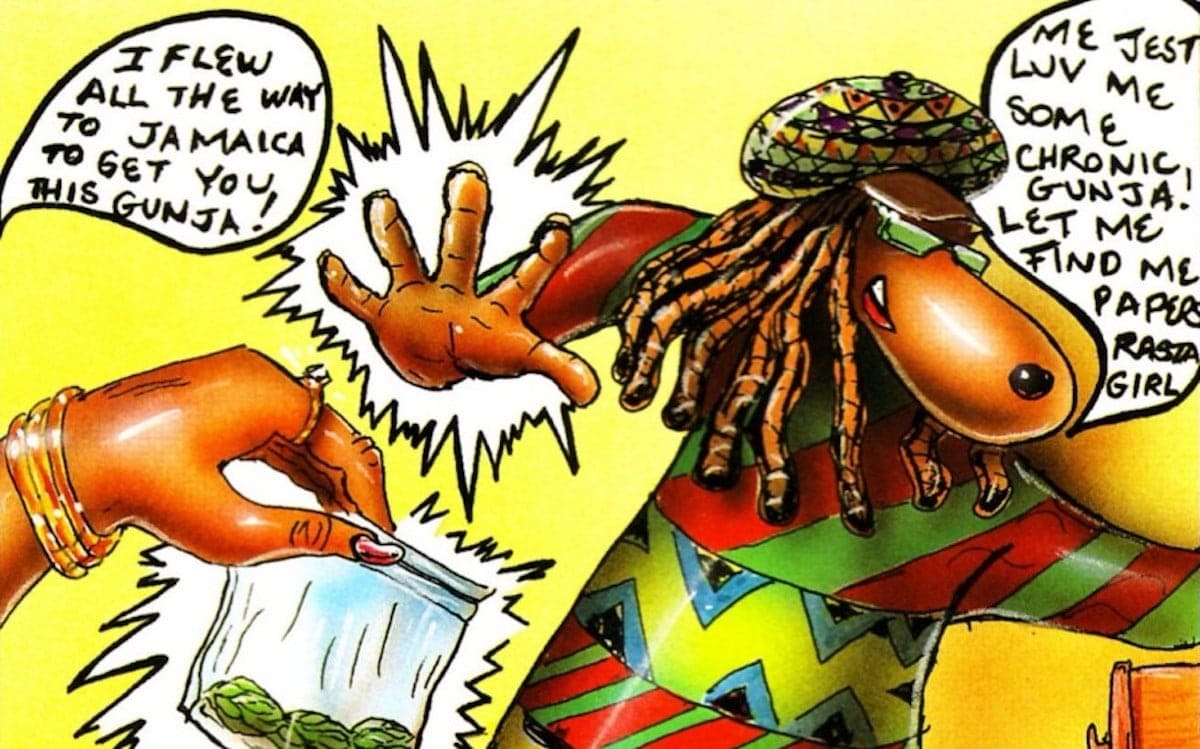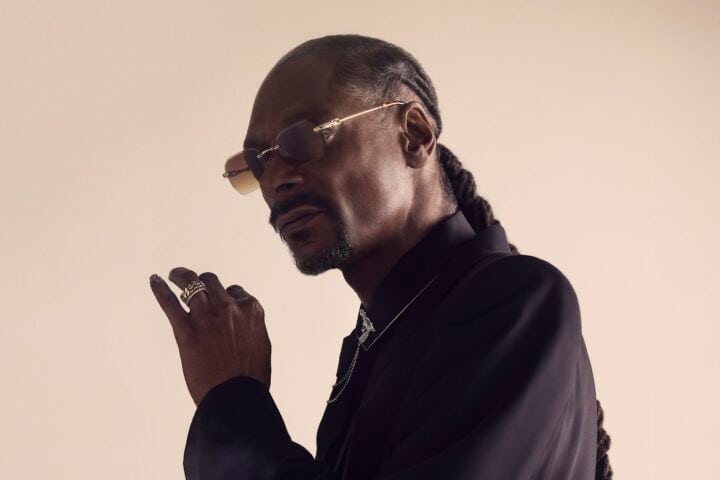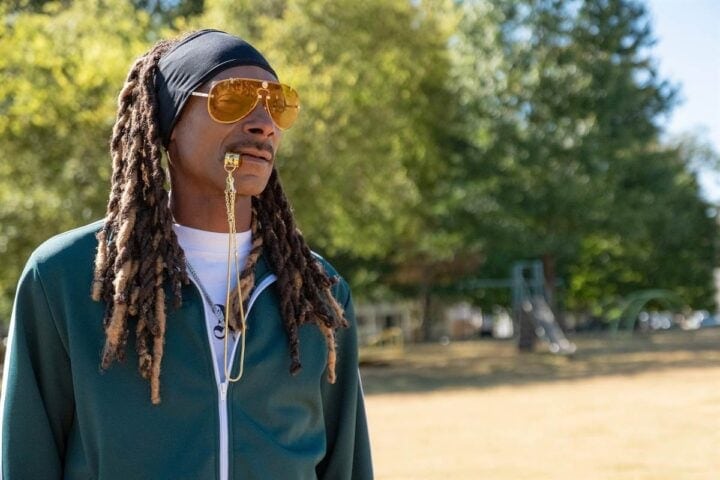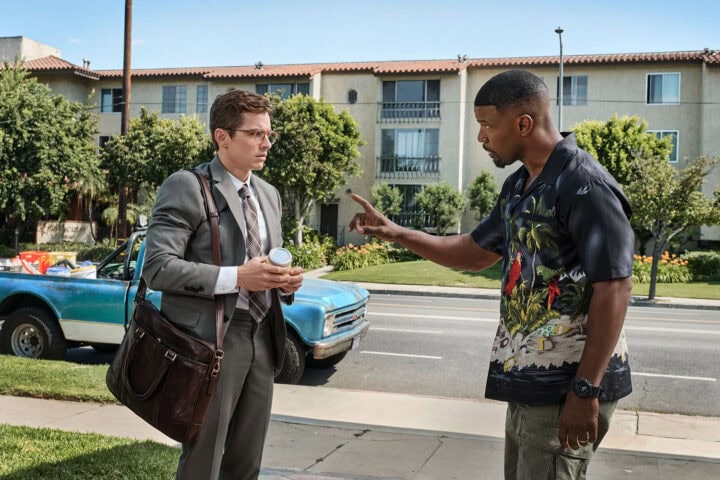Snoop Dogg is, for lack of a better term, a pretty bizarre figure in pop culture, one whose longevity and chameleon-like skills are something of an anomaly in hip-hop. Rappers turned actors like LL Cool J and Ice-T have been able to effectively sand down the more bellicose elements of their personas for mass consumption, but the former never made as hard of a family-friendly pivot as Snoop, and you’re unlikely to find Ice-T chillin’ with Justin Bieber.
Born Calvin Cordozar Broadus Jr., Snoop Dogg—formerly Snoop Doggy Dogg, and, for a brief moment when he was exploring Rastafarianism, Snoop Lion—is a man for every season, or, more accurately, an entertainer for any occasion. Between all of his acting credits, Twitch livestreams, and cooking-show antics with BFF Martha Stewart, one could easily forget that he’s a music artist who’s dabbled in just about every genre, from gangsta rap to gospel. These days, he’s more well-known for his own ubiquity than for anything resembling artistic relevancy.
If there’s an album in Snoop’s catalog that has withstood the test of time, though, it’s his scruffy 1993 debut, Doggystyle, the yin to the yang of Death Row labelmate Dr. Dre’s The Chronic. Dre’s opus is a largely straight-faced pessimist epic, while Snoop’s is a carefree ode to oafishness. Both are G-Funk staples that traffic in misogyny and gangsterisms and, due to their respective performer’s contrasting personalities, complement each other nicely. Which makes sense, given how much structural DNA the two albums share, as they were practically recorded alongside one another and feature many of the same overlapping vocal talents.
From the jump, Doggystyle is upfront with its intentions: to supply the highest level of lowest-common-denominator entertainment possible, and to introduce the ever-laconic Snoop Dogg to the world. Never mind that the album opens with a skit followed by an intro, neither of which has Snoop doing much besides serenading some lover in a bathtub, these tracks give a succinct snapshot of what’s made him such an endearing figure for so long. In a span of about five minutes, Doggystyle posits Snoop as a harbinger of sensuality, confidence, joviality, empathy, and pridefulness—and all that he’s really done to accomplish that is make his presence known.
One thing that’s also made almost immediately clear on Doggystyle is how elastic Snoop’s flow is, where he easily sells the album’s often jarring tonal shifts by subtly modifying the rhythm of his delivery or hardening his cadence slightly. Take the three-track run from “Gin and Juice,” a party jam with some of the deepest electric bass and slickest portamentos to ever grace a ’90s hip-hop cut, to the horrorcore anthem “Murder Was the Case,” with the hyper-surreal “Lodi Dodi,” a sexually charged remake of a Slick Rick song with some piping high-pitched keys thrown in for good measure, sandwiched in between. Any other rapper would seem out of their element attempting all three of these disparate styles, but Snoop, who impressively freestyles through nearly the entire album, sells all of them and sounds totally unbothered while doing so.
While Snoop is the album’s star, Dr. Dre’s production keeps the entire thing afloat, even when it’s starting to run out of steam. After Doggystyle reaches its apex with the debauched “Who Am I? (What’s My Name?),” which contains some of Snoop’s most iconic line deliveries—“Now just throw your hands in the motherfuckin’ air/And wave the motherfuckers like ya just don’t care”—the album begins to hit a creative wall. “Aint No Fun (If the Homies Can’t Have None)” lacks a certain edge that the previous tracks carried, and the sly “Doggy Dogg World,” which clocks in at over five long minutes, is one of the more anonymous sounding songs on the album.
Like Snoop’s trajectory into mainstream acceptability, Doggystyle is an album best appreciated in bits and pieces. While not as excessively bloated as many other ’90s rap albums, even at 55 minutes it outstays its welcome. There’s only so far playful chauvinism can get you, even if it’s set to a sick beat. As far as introductions go, however, there are only a few that have been as fitting as this one. “What’s my motherfuckin’ name?” Snoop famously inquired on “Who Am I? (What’s My Name?)” and Doggystyle provided a fully formed answer.
Since 2001, we've brought you uncompromising, candid takes on the world of film, music, television, video games, theater, and more. Independently owned and operated publications like Slant have been hit hard in recent years, but we’re committed to keeping our content free and accessible—meaning no paywalls or fees.
If you like what we do, please consider subscribing to our Patreon or making a donation.





